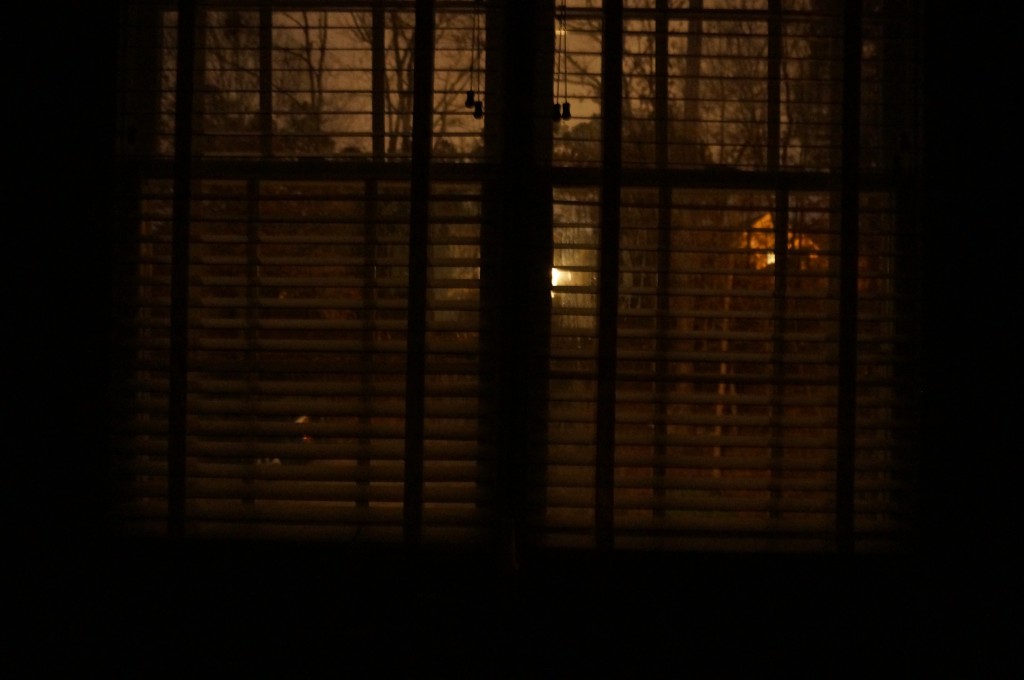The immediate sequel of #11. ‘Nuff said.
Author: Michael Alan Dorman
Books of 2014, #11: The Phoenix Guards, by Steven Brust
Some days, you just need you some Dumas pastiche. Or, at least, I do.
I’ve read this, and its immediate sequel, 500 Years After a dozen times since it first came out. My affection for it runs deep and wide. If it is not a profound work of literature, it is an exemplary entertainment (which, really, I would say about Steven Brust’s entire oeuvre).
That said, there is An Incident that this book will always remind me of.
Many years ago—understand, this is before the Internet had made it into maintstream consciousness, and even somewhat before Sir Tim had a first implementation of the World Wide Web—if you were a fan of any sort of Science Fiction or Fantasy literature, the place to be was on an online service called . This was because GEnie had the SFRT—the Science Fiction Round Table. Actually, there were four of them, because they quickly outgrew the first one.
If you go read the page on Wikipedia, you’ll notice there’s a disproportionate amount of verbiage dedicated to the SFRT. This is not an accident. Other RT and other services were popular, but the SFRT was a community with a real presence.
(Incidentally, I actually think one of the things that made GEnie very attractive was that they provided, gratis, software (called Alladin) for easy offline reading of new messages—and they even had a version that supported the Atari ST that I had at the time. This meant you could participate without breaking the bank at a time when an hour of access at 1200 bps cost $6.)
So, anyway, there was lots of activity on the SFRT, and, more to the point, there were lots of writers. Pros. For instance, Neil Gaiman, then just coming into prominence with Sandman, was on a lot—I remember him announcing the birth of his daughter Maddie on the SFRT, for instance. This is where I first became acquainted with Patrick and Teresa Neilsen-Hayden.
Anyway, lots of pros. Including Steven Brust.
So, I can only hope that the message in which I once explained to him how I thought a twist in the plot was “unearned” has disappeared into nothingness, as GEnie and the SFRT are gone, gone, gone.
But other than that one incident, the SFRT was a wonderful place to hang out. I miss it, except of course for the fact that I wouldn’t have time ot keep up with it today.
Books of 2014, #10: Locke & Key, by Joe Hill and Gabriel Rodriguez
I suppose you could say that I’m cheating a little bit here, insofar as Locke & Key is a comic book. But at this point it’s finished—36 issues from beginning to end—and I read it through in its entirety.
I’m definitely going to recommend this book; I only picked up the first volume a few months ago, and I’ve been waiting for the conclusion to be collected ever since.
The story builds methodically from page one. In re-reading the earlier collections, I was impressed with how dense it actually is—in this era of decompressed storytelling, there is no filler here. I suspect that on future re-readings, I will continue to notice more subtle details from the beginning and middle that have ramifications for—or are referenced in—the end.
This is a book that is chock-full of character and story.
That said, I’m not yet certain that they stick the landing. Most of it flows with the sort of inevitability that a horror story needs to not feel gratuitous, but there’s one reveal that didn’t work for me on the first read. It may be that when I go through it again, it is set up better that I realize this first time through; I would certainly believe it, as even this second read-through has let me see many more subtleties than the first time.
Oh, and that’s all ignoring the absolutely brilliant art by Gabriel Rodriguez. It reminds me of a more traditionally cartoon-y relative of Marc Hempel’s art from Sandman’s The Kindly Ones. It has a clean line with lovely detail, and that’s even before he does his Bill Watterson tribute.
Books of 2014, #9: The Rapture of the Nerds: A tale of the singularity, posthumanity, and awkward social situations by Cory Doctorow and Charles Stross
I guess you could say this was a guilt read.
I read Cory Doctrow’s first three novels (Down and Out in the Magic Kingdom, Eastern Standard Tribe, Someone Comes to Town, Someone Leaves Town) and found them all perfectly enjoyable…but I’ve never re-read any of them, which is actually very unusual for me; I’ve even been known to re-read books I didn’t like the first time around. Anyway, something about them just doesn’t inspire a desire to re-experience them in me.
I have read everything Charles Stross has written except for his Merchant Princes novels, of which I read the first two. With the exception of The Laundry Files novels, which I adore—how could you possibly beat Linux + Lovecraft + Bond—I find most of them to be perfectly fine on the first read, but either uninspired or maybe even a little grating subsequently.
(I cannot stress this enough: I re-read books all the time; I am like a fucking shark, perpetually swimming through a sea of words to stay alive—but I’m not always up to taking on the nearest orca)
Still, I enjoy both of their web presences immensely, and think they’re both smart, talented guys, whose books I generally like—so how could I not read a book they collaborated on?
At the risk of sounding like I’m trying to be snide—which I’m not—this is exactly the book that I would have expected the two of them to produce; it is manifestly the melding of their authorial voices and the ways in which they approach plot and the sorts of ideas they explore. As obvious as the cat flap.
And as a consequence, while I don’t begrudge the time I spent reading it—it was amusing and enjoyable—I don’t know that I’m going to pick it up to re-read it any time soon.
Oh, and if you care: I would characterize it as a post-singularity picaresque, with a teeny-tiny bit of homage to Robert A. Heinlein’s Job: A Comedy of Justice (which is itself influenced by Robert Branch Cabell’s Jurgen: A Comedy of Justice, which I have read, and from which my frequent response of “I’ll try anything once” is taken).
Books of 2014, #8: Tripwire, by Lee Child
Yeah, another week, another Reacher novel. I could probably do something more productive with my time, but you can only bang on your drums for so long before the other inhabitants of your home call “enough!”
Books of 2014, #7: David and Goliath: Underdogs, Misfits, and the Art of Battling Giants, by Malcolm Gladwell
So, I am on record as being somewhat skeptical about Malcolm Gladwell’s books: with with a style that demands that he work to demonstrate his thesis across a broad set of subjects some of which his knowledge must be necessarily shallow…it is perhaps unsurprising that on subjects where I have deep knowledge, I often feel like he has let a desire to fit his thesis distort the facts. Probably not intentionally, but it still feels like it means you must take all of it with a grain of salt.
So why ever read another one of his books?
Well, first off, I, too find some value in having a broad exposure to stuff, even if much of that exposure is relatively shallow.
But more importantly: even when his theses are applied overly broadly, or when he blows some basic fact, it doesn’t mean that it’s without value. Having a wide array of mental models you can consider in different situations makes you more versatile, more able to be responsive rather than reactive. The only danger is when you allow yourself to be come dogmatic in your devotion to a paticular model.
So, what is the takeaway from David and Goliath?
Stated most generally, I would say, “Question the assumptions the system hands you, and see what you can do to confound them.” Whether it’s the clash in the “cover story”, or the question of the “best” college education, or how to succeed in basketball when your newer to it and don’t have the same level of skills, try to be the one to set the terms of the engagement, rather than doing what everyone else is doing.
It’s not necessarily the easiest path, but it is one that may have greater potential for success, however you define it.
Books of 2014, #6: The Fault in Our Stars, by John Green
My e-readers says this book is nearly 400 pages. That sounds improbable to me, since I think I read the whole thing in no more than 6 hours.
It is a perhaps telling irony that I started reading The Fault in Our Stars in the same week that my Mom started chemotherapy for a recurrence of the breast cancer that had been in remission for nearly 15 years.
Anyway, it is sad, funny, impossibly earnest, full of lies and woven through with truths. I know that it’s positioned as a Young Adult novel, but I think that’s a lack of imagination on the part of reviewers as much as anything—the idea that any book featuring teenagers could be anything else being hard to process.
I recently saw the trailer for the movie they’ve made of it. I fear that it will fall short of the beautiful story that the book is.
Books of 2014, #5: Die Trying, by Lee Child (Jack Reacher #2)
The “Jack Reacher” novels are causing me to realize that I haven’t actually read a lot of conventional thrillers in…well, maybe ever. I mean, I read Tom Clancy’s first few novels—basically, the ones that were published before I finished college—and that’s about it.
That said, I’ve seen plenty of movies in this mold, so the conventions of the genre are pretty familiar. And truly, these don’t seem to be bad renditions of the type…except for the sex elements.
It’s not that I’m a prude—more that if I was going to sit down and find passages to mock in these books, I would just start skimming for anything having to do with Jack Reacher’s thoughts about the attractiveness of women, or even more unintentionally hilarious, his renditions of sex. They’re just excruciationly awkward.
Other than that, yeah, it was a perfectly fine read, nothing really to distinguish it.
Books of 2014, #4: Zealot: The Life and Times of Jesus of Nazareth, by Reza Aslan
Whoa.
I’m a little surprised that the entirety of the kerfuffle that this book seems to have kicked up (at least as far as I’m aware) was an moronic challenge from a Fox News idiot.
Now, any realistic review should note that this book is doing a lot of extrapolation—as Aslan himself notes, the historical record on Jesus of Nazareth is spectacularly minimal. However, the few facts we have, when placed in the historical context—of which we have much more of a record—suggest that the constituency and central tenets of the bevy of sects that hold Jesus as their central focus are far removed from anything he intended.
In fact, the impression I was left with was that the most fundamental author of Christianity is most likely Paul of Tarsus. That seems a somewhat radical proposition in most actual Christia circles.
Oh, the awe-inspiring horribleness of it all…
For as long as I remember, I have been a fan of the Beatles.
But in my youth, that love may have expressed itself…in unnatural ways.
For instance, I can remember in 1979 or 1980 watching repeatedly, almost obsessively on HBO.
Haven’t seen it in the intervening 30+ years.
I noticed at some point in the none-too-distant past that it had showed up on Netflix, and I felt compelled to watch it…you know, For Science.
I would say that it hasn’t aged well, but really, it wasn’t good from the very moment it was released. Mess doesn’t describe it—this may be the Plan 9 from Outer Space of musical movies.
Still, I will commend to you the three actual good parts: Earth, Wind & Fire performing “Got to Get You Into My Life”, Aerosmith performing “Come Together”, and Billy Preston performing “Get Back”. They all come later in the film, so I recommend judicious use of the fast-forward option.
Oh, wait, I nearly forgot! You also shouldn’t miss the utterly inexplicable group reprise of the title song at the end of the film—it includes, among others, Curtis Mayfield, Heart (though—I’m not making this up!—they only show the male members of the band; I saw these three rock-and-roll guys who seemed a little familiar, and it wasn’t until I read the credits that I realized why I couldn’t place them, because, you know, they’re the least identifiable members of that band), Stephen Bishop (as the Awkwardest White Man In The Universe—you’ll know which one I’m talking about), Rob Lowe (sorry, no, that’s a young Robert Palmer), Johnny Winter, Tina Turner, a very confused Carol Channing…and a host of others.
It is magnificent in its randomness.
Frankie Boyle interviewing Grant Morrison…
OK, there’s a certain amusement from the fact that much of this interview verges in incomprehensible because, well, Scottish accents. Serious Scottish accents—none of this Hollywood Scottish accent shite.
But I actually think this interview is worth your 30 minutes. As a hook, I’ll point to the moment when Frankie Boyle suggests the idea that all the Batman stories ever written are just the dying moments of Bruce Wayne, age 5, dying in the street when he’s been shot along with his parents.
Disinterring the past…
Going through a bunch of old files with the intent of scanning what was needed, and shredding what wasn’t, I ran across this interesting artifact, from my first PC (which is, of course, distinct from my first computer):

I even took advantage of it…
Even more amusing was the detritus of my 20-years-gone flirtation with OS/2.
Books of 2014, #3: Killing Floor, by Lee Child (Jack Reacher #1)
If anyone wasn’t completely certain that I was reading (and am now ripping off) Chet’s posts about books last year, then this book selection will probably eliminate any doubts.
I was looking for some low-effort entertainment, and based on the fact that the movie had been completely watchable, and that Chet has apparently read all of them, I figured that the Jack Reacher novels were at least unlikely to offend me terribly, since Chet tends to be somewhat more sensitive to such things than I.
And indeed, while it seemed obvious that Killing Floor was a first novel, the things it did wrong or poorly were at least different things than most first novels. The prose, while choppy, had the virtue of at least not being purple. There were occasional word choices that, if I had not already known “Lee Child” was British would have clued me in—but no epic missteps.
The plot…ehhh, in many ways, the less said about the plot the better. It was serviceable. It caused things to happen, caused conflicts to arise, even if much of it felt kind of forced.
I do intend to read the second—i get the impression from Chet that they do get better—and I hope that, as I gleaned from Childs’ introduction to this novel, the rest of them aren’t in first person.
I will add, though, that if anyone needs a long series of books to keep them busy, you owe it to yourself to read Patrick O’Brian’s Aubrey & Maturin novels. I flat out don’t care whether you think they sound like your cup of tea, because whatever your opinion, it’s wrong: either you’re wrong that you won’t love them, or you’re wrong about why you’ll love them.
Books of 2014, #2: Nicholson: A Biography, by Marc Eliot
Over the last few months, I’ve ended up reading a few biographies of entertainment figures. The best, hands down, was ?love’s Mo’ Meta Blues: The World According to Questlove which I will recommend to anyone anytime.
Nicholson: A Biography doesn’t rise to that level—not by a long shot. I wonder if it’s because Jack Nicholson is simply not someone who will ever really let you in—certainly the patterns of his interpersonal relationship suggest that to be the case.
Still, the book isn’t helped by the fact that the text itself has some problems; it seems poorly copyedited, given that there’s at least one place where they misspell “Parramount”, and the voice seems to me to veer towards apologia at times.
It’s not devoid of interest—my awareness of Jack Nicholson was pretty superficial, so it’s not like I didn’t learn things hadn’t known before—but mostly I learned that Jack Nicholson isn’t someone I think I’d care to hang around with.
Books of 2014, #1: One Summer: America, 1927, by Bill Bryson
The other day, I found myself describing Neal Stephenson’s Cryptonomicon to some friends, and admitted that as much as I enjoyed his work, he was an author who never met a digression he didn’t like.
Bill Bryson occupies a niche that allows him to produce books that are often the accumulation of their digressions. I don’t say that negatively—I enjoy the style and the content, and he does it well, diligently making the connections that thread the digressions into a narrative.
Still, One Summer doesn’t hold together as well as his other books. I think this is because the most substantial hook he has upon which to hang his narrative is that pivotal moments in the various parallel stories he is telling take place in this one summer—but much of the book is everything that leads up to the events happening that summer and a lesser but still significant part is concerned with what happened afterward, and the actual events happening that summer are generally (but not always) unrelated except for being “significant”.
As a consequence, it doesn’t grant the various narrative threads the same sense of coherence that you find in In a Sunburned Country, or A Walk in the Woods, or even At Home.
Which is not to say that I didn’t find it an interesting read; the individual threads it covers are significant ones, taking place at an inflection point in the rate of change in our society—it just doesn’t make for a coherent fabric of a narrative.
2014-01-03

The world outside my window
2014-01-02

The world outside my window
2014-01-01

The world outside my window
The unusual cast of Alien
- John Hurt – 39
- Yaphet Kotto – 40
- Tom Skerrit – 46
- Ian Holm – 48
- Harry Dean Stanton – 53
The two female actresses, Veronica Cartwright and Sigourney Weaver, were both 30, which seems not entirely out of line with what casting for the movie might look like today.
Has our movie culture just become that much more youth-obsessed in the intervening decades?
(Incidentally: one of the members of the “World Securty Council” in The Avengers was played by Jenny Agutter)
Corporations are not people
So I was watching the Daily Show a few nights ago, and they were discussing the many problems that seem to arise from this odd notion of regarding corporations as people, when I finally realized the appropriate test to apply.
I direct you to The Merchant of Venice, Act 3, Scene 1:To bait fish withal: if it will feed nothing else,
it will feed my revenge. He hath disgraced me, and
hindered me half a million; laughed at my losses,
mocked at my gains, scorned my nation, thwarted my
bargains, cooled my friends, heated mine
enemies; and what’s his reason? I am a Jew. Hath
not a Jew eyes? hath not a Jew hands, organs,
dimensions, senses, affections, passions? fed with
the same food, hurt with the same weapons, subject
to the same diseases, healed by the same means,
warmed and cooled by the same winter and summer, as
a Christian is? If you prick us, do we not bleed?
if you tickle us, do we not laugh? if you poison
us, do we not die? and if you wrong us, shall we not
revenge? If we are like you in the rest, we will
resemble you in that. If a Jew wrong a Christian,
what is his humility? Revenge. If a Christian
wrong a Jew, what should his sufferance be by
Christian example? Why, revenge. The villany you
teach me, I will execute, and it shall go hard but I
will better the instruction.
Apply this to any human being you find on the street, of any color, gender, sexual orientation, religion (or lack thereof), health, wealth, height, weight, etc., and your answer must, of course, be that human being is a person.
Corporations, though…if you prick them, they do not bleed: they are not people, and it is unsurprising that basing laws on such a pretense should have a distorting effect no our society.
Coupled with the fact that the whole notion of a corporation is fundamentally about disclaiming legal liability, it shouldn’t even be a surprise that they are fundamentally amoral.
There is simply no basis for affording them the rights that we grant ourselves as citizens. They are not people, and there is no good reason to pretend so.
Had we but world enough, and time…
I knew guys in college who, I think it’s fair to say, worshipped at the altar of Lou Reed.
The truth is, I don’t own a Lou Reed album. Not Songs for Drella, not Transformer, not New York, not Metal Machine Music or Berlin. None of them. And while I own all the Velvet Underground albums, I don’t pretend to be all that intimately familiar with them.
Still, I know so many people I am personally devoted to—that I love and admire, whose music is burned into my soul—were among those mythical thousands who started bands after hearing The Velvet Underground & Nico.
And there are songs from the Velvet Underground that I love, that will be with me until I die. Some are the obvious ones, perhaps—”Sweet Jane”, “Rock and Roll”, “Beginning to See the Light”. but I owe him for providing the platform for Sterling Morrison’s wildly abandoned and intensely beautiful guitar break in What Goes On, a recorded moment that brings me to the verge of tears every time I hear it. And if only I could erase Nico’s singing, the cacophanous swirl of “All Tomorrow’s Parties” makes me want to drown in it.
So I owe him that.
A book so good…
I saw Questlove on The Daily Show. I knew who he was in a general way—in fact, are my favorite sticks when I’m playing—but I hadn’t, to the best of my knowledge, ever heard a single thing by The Roots. Ever.
Thinking back on it, my memory of the interview was that it was a little awkward. Re-watching it just now, though, suggests that my memory is shot to shit—I mean, I didn’t even remember that it was John Oliver, and while it was a low-key interview, it wasn’t really awkwardness per se, or at least not on Questlove’s part.
Regardless, it convinced me to buy the book.
I was a third of the way through it, when I realized that I had to by a copy of it for my friend Paul for a couple of reasons.
The first is because Paul is two months younger than me, and Questlove is a month younger than that—so when Questlove is talking about his childhood, it resonated with me surprisingly strongly. I mean, no, I was not black, nor was I growing up in Philly, but we share a passion for music, and many of the musical touchstones of his childhood are ones that I remember, even if they weren’t quite as much a part of my cultural identity. I mean, I didn’t really come to an appreciation of Parliament until I was in my 30s (incidentally, I’m going to see them at the end of the month), but there are Earth, Wind and Fire albums that I have known down to the note as far back as I can remember. I remember Soul Train in the 70’s, though I mostly remember just being…baffled, it was that far outside of my experience.
Anyway, that was the first reason—we’re all contemporaries, and I figured Paul would feel a kinship with many of those same things.
The second, of course, is because Paul owned a hip-hop club in Atlanta in the 90’s. And so I sorta wondered if he had ever met Questlove. In fact, he and his wife knew the whole band. Not fast friends or anything, but they knew them.
Anyway, I think this is probably my favorite book I’ve read so far this year. It’s interesting to read his perspective on the roots of hip-hop, about which I know relatively little—I’ve always been a rock and roll baby. It’s hilarious to read his meetings with Kiss and Prince and Tracy Morgan. it’s profound to read how The Roots are grappling with trying to be a band after 40.
If you care about music even a little bit, why haven’t you already read this book?
It was all a horrible dream…
This has been a post a while in the making—one of the problems with writing the software that lets you post to your blog is that it puts you on the hook if something changes, and I wasn’t timely about handling that, so I’ve got some posts that have been stewing.
Anyway, It’s not without slight embarrassment that I admit that I like the new Van Halen album. It’s not great, mind you—it’s no Fair Warning, or frankly even a Van Halen II (what I think to be the weakest of their Roth-era albums)—but there’s a swagger, coupled with a wink and a grin, that is really fun to witness.
And I’m realizing that the reason is unequivocally David Lee Roth.
When 5150 first came out, I liked it a lot. And I suppose it’s not a bad album even now. And OU812 and even For Unlawful Carnal Knowledge are similarly not bad albums—but they lack a spark. Listening to them now, while the musicianship is great, the actual songs are…I dunno. They’ve become smaller than life; pedestrian; humdrum.
I guess at some level I recognized it even then. I never bought their last album with Sammy Hagar, Balance, or their one album with Gary Cherone, Van Halen III,
A Different Kind of Truth, on the other hand has plenty of flaws, but it also has lyrics like:How many roads must a man walk down
before he admits he’s lost.
And do you really, really drive this way
just to piss me off?
Like the ancient immortals said
Don’t want ’em to get your goat
Don’t show ’em where it’s hid
But that’s just what I did
You should read Young Avengers. Full stop.
I’m going to be honest—my first serious encounter with Kieron Gillen was his current stint on Iron Man. It has not been knocking my socks off, though I recognize that some of that is because it’s coming on the heels of Matt Fraction’s run which quite liked.
That said, I was well aware he was capable of doing great things—not everyone can make the Internet cry, as he did with the finale to his ‘Kid Loki’ storyline in Journey Into Mystery. But I hadn’t been picking it up as it went along, and it hadn’t been collected yet, so I waited. I bided (bode?) my time until the entire run was collected, and then followed a to start at the beginning and follow it through to the end.
I’m totally comfortable admitting I cried. Really, completely OK with it. They were very, very manly tears.
I hadn’t realized that he was writing Young Avengers, and I hadn’t realized it was starring, among others, Kid Loki. No, I don’t know how I missed it…what are you, my mother?
Anyway, I checked with the guys at the comic shop, and they told me that the first collection, comprising issues 1-5, was going to come out last Tuesday, so I went ahead and picked up issues 6-8 off the rack, and then waited for the trade.
Oh, my. I can’t recommend this enough. You don’t have to have read any of the other Kid Loki material to be appreciate it. You don’t have to have read the prior Young Avengers series to understand what’s going on.
Don’t wait. .
Incidentally, while you’re at it, you should also be reading the other best superhero comic of the moment: Hawkeye. Collections and are out, and you should read the hell out of it. It is every bit as brilliant, though I have to admit to being a little sad on those issues where David Aja isn’t illustrating—his brilliance is impossible to overstate.
One day, if they’re smart, Marvel will collect the whole Kid Loki storyline in one place, in order, with all the supporting material, so you don’t have to sit down with your set of collections carefully annotated with post-its so that you can read it all in order.
An afternoon at the Museum
I’m in Santa Clara for the week, meeting and planning for the next year with my colleagues at the new gig. In order to be here bright and early on Monday morning, I flew in Sunday late morning (when the only non-stop flight between the Bay Area and RDU arrives).
This left me with most of a day to myself, so I went to the Computer History Museum for a couple of hours.
I think it’s reasonable for me to say that I was acquainted with much of the information they cover there–I’ve read a lot about the history of computing over the years–but, unsurprisingly, I hadn’t ever had a chance to see a lot of it; even the section at the Smithsonian for computing only has a small number of (admittedly, very significant) machines.
So yeah, that was a hell of a lot of fun. Never doubt that I’m a geek.
The silliest thing I think I saw was probably the ashtray in a Project SAGE workstation:
The Mad Men era of computing

The Heathkit H-8 in all its glory
During my pre-teen years, I had the sequence you had to type into the hex keypad embedded deep in my muscle memory. I did some spelunking around, and found a page that references it, but I think the person who wrote that up is using a more recent/hacked ROM, so it’s a little different from what I used to do.
Or, perhaps more accurately, My Real First Computer:
Atari ST, how I enjoyed thee
The computer on which I first programmed in something other than BASIC (Forth, Modula-2, C).
The computer that introduced me to the Free Software community in which I am still deeply involved–I first used gcc and even g++ on this machine. I learned Emacs (admittedly, microEmacs) on it. I used a bash-like shell.
It is my impression that the Amiga community didn’t establish quite such strong ties to the unix-oriented Free Software community, so I’m actually profoundly grateful that I ended up with what was probably the less powerful, less idiosyncratic machine–it set me on the course I’m still heading down today.
Having shown the H-8, let me show the H-1, it’s analog predecessor:
“Analog computing” will always sound weird to me

Raise your hand if you know who Joe Ossanna was
One of the things that distinguished Unix from many other contemporary systems was having fairly comprehensive on-line documentation, addressable with the man command.
One of the things that enabled this was having a markup system that could drive both printers and text output. This evolved out of the roff system that Joe Ossanna wrote, and then rewrote as nroff (new roff) and finally troff. And then he passed away at a relatively young age.
So not only was this a manual from one of the predecessors of the OS on which I’m writing this, it belonged to the person wrote the language in which it was presented, who never got the opportunity to see how this system, Unix, that he helped bring into existence, would eventually become wildly successful and still relevant 40 years later.
John Scalzi does not have to die
When I finished reading the ultimate chapter of The Human Division this morning, I was…upset. Not that I hadn’t enjoyed the ride so far—it made Tuesdays quite a fun thing to look forward to, in fact. But dammnit, that was a resolution that was no resolution at all.
I figured John would know enough to realize that to not announce that there was going to be at least one more novel in the Old Man’s War series would be to put himself in mortal danger.
So I am very pleased to see that he’s announced that there will be a Season Two.
Roger Ebert is dead, alas
I was sad, if not entirely surprised, to hear that Roger Ebert had died.
I don’t have—and I don’t think I will ever have—the relationship with movies that he had; while I find movies entertaining, I also own a T-shirt that sums up my feelings startlingly well: “The book was better.”
Roger Ebert bridged the gap for me. I enjoyed reading his reviews and essays enourmously. He made me want to be a better, more informed, member of the audience.
I have seen only a few of the movies discussed in his last Great Movies book, but enjoyed reading about such exotica as El Topo or Winter Light; movies that I will probably never see—frankly, have no intention of seeing—and yet were painted for me in a beautiful form that I could find appreciation for.
Seeing something through the eyes of someone so steeped in something, so passionate about its meaning and devoted to the expressive possibilities, is a powerful thing. To lose someone with that capacity to lay bare the depth and breadth of a subject, while still loving the magic and beauty of it,leaves us diminished.
If you haven’t read his memoir, Life Itself, you should.
I just watched Seeking a Friend for the End of the World last night, and I looked up his review of the movie. The last paragraph seems painfully apt:The best parts of this sweet film involve the middle stretches, when time, however limited, reaches ahead, and the characters do what they can to prevail in the face of calamity. How can I complain that they don’t entirely succeed? Isn’t the dilemma of the plot the essential dilemma of life?
Walking the Dead
Where Are We Now? is not my favorite David Bowie song. Really, not by a long shot.
Favorite or not, though, I’m happy to see him making new music—I had all-but given up hope of ever hearing the words “new music from David Bowie” used in a sentence together, and that made me sad.
It’s interesting to see him revisiting Berlin, the site of the creation (with some involvement of Tony Visconti, who is being credited as producing the new album) the three of his albums (Low, “Heroes”, and Lodger) that would seem to most effectively bridge the gap between the avant-garde leanings he’s always shown and the trim, effective pop songs he’s always been so good at producing. So I’m interested to see where it all ends up.
Incidentally, I am amused by the mention of KaDeWe in the lyrics of the song. I remember the one trip my family made to Berlin when we lived in Germany, back in 1983. My grandfather bought a pair of Zeiss binoculars in KaDeWe. It’s interesting to note that that same trip came up in a post here almost 10 years ago (and that on the 10th of February of this year, this blog will be 10 years old).
The vision that I suspect religious groups really fear…
I would recommend you read this whole post from Brian McLaren, where he responds to someone who has decided they can no longer consider themselves his ally because of his acceptance of homosexuality. It is sad, affectionate, understanding, gentle and accepting. I’ve never heard of him before in my life, and despite not considering myself to be a Christian of any stripe—I’m of the Gandhian “I like your Christ, I do not like your Christians” school—I like this guy. He demonstrates in this response those attributes I would wish to be able to embody myself.
And then there comes the penultimate paragraph, that—from my observation point outside of any religious group, Christian or otherwise—seems to me to cut to the heart of why such groups throughout the ages end up being so petty and unkind:
You ask, if we change our way of interpreting the Bible on this issue (my words, not yours) “- what else will happen next?” Here’s what I hope will happen. After acknowledging the full humanity and human rights of gay people, I hope we will tackle the elephant in the room, so to speak – the big subject of poverty. If homosexuality directly and indirectly affects 6 – 30% of the population, poverty indirectly and directly affects 60 – 100%. What would happen if we acknowledged the full humanity and full human rights of poor people? And then people with physical disabilities and mental illnesses and impairments? And then, what after that? What would happen if we acknowledged the spiritual, theological, moral value – far beyond monetary or corporate value – of the birds of the air, the flowers of the field, of seas and mountains and valleys and ecosystems? To me, Jesus’ proclamation of the reign or commonwealth of God requires us to keep pressing forward, opening blind eyes, setting captives free, proclaiming God’s amazing grace to all creation.
That is a vision that, at some rational level, should scare the crap out of anyone. If you’re not intimidated by that idea—of making a categorical choice to love, respect and care for everything—then I can only say that I don’t think you’ve really thought about what it entails.
You have few choices if this is what your religion is building up to, and only one of them—owning up, doing the work, accepting your failures and the failures of others, getting up dusting yourself off and doing it again—is going to leave you a healthy, happy human being. All of the rest of them seem to me to lead to trying to draw arbitrary lines where you say, “We don’t have to care about them“, or “They don’t deserve it”…and once you’ve done that, you’ve impoverished your soul. That’s not a state I think anyone wants to come face to face with.
Of course the only thing that could be cooler…
than an all-female Iron Maiden cover band (seen here performing Aces High)
would be an all-female Metallica cover band. Oh, what’s that? There is one, you say?
Of course, any cover of “Master of Puppets” has to be judged by the sheer heaviness of the lead-in to the big guitar solo (in that video, seen at 5:36), which should sound like it is about to roll over you and crush you under its wheels.
And, sadly, that’s where the one shortcoming both Mistallica and Iron Maidens suffer from is on full display—although their instrumental prowess is significant, even with Bruce Dickinson’s famously large vocal range, most of Iron Maiden’s tunes generally skirt the low low end of most female singers vocal ranges. It’s even worse with James Hetfield, to has spent most of his career barking more than singing.